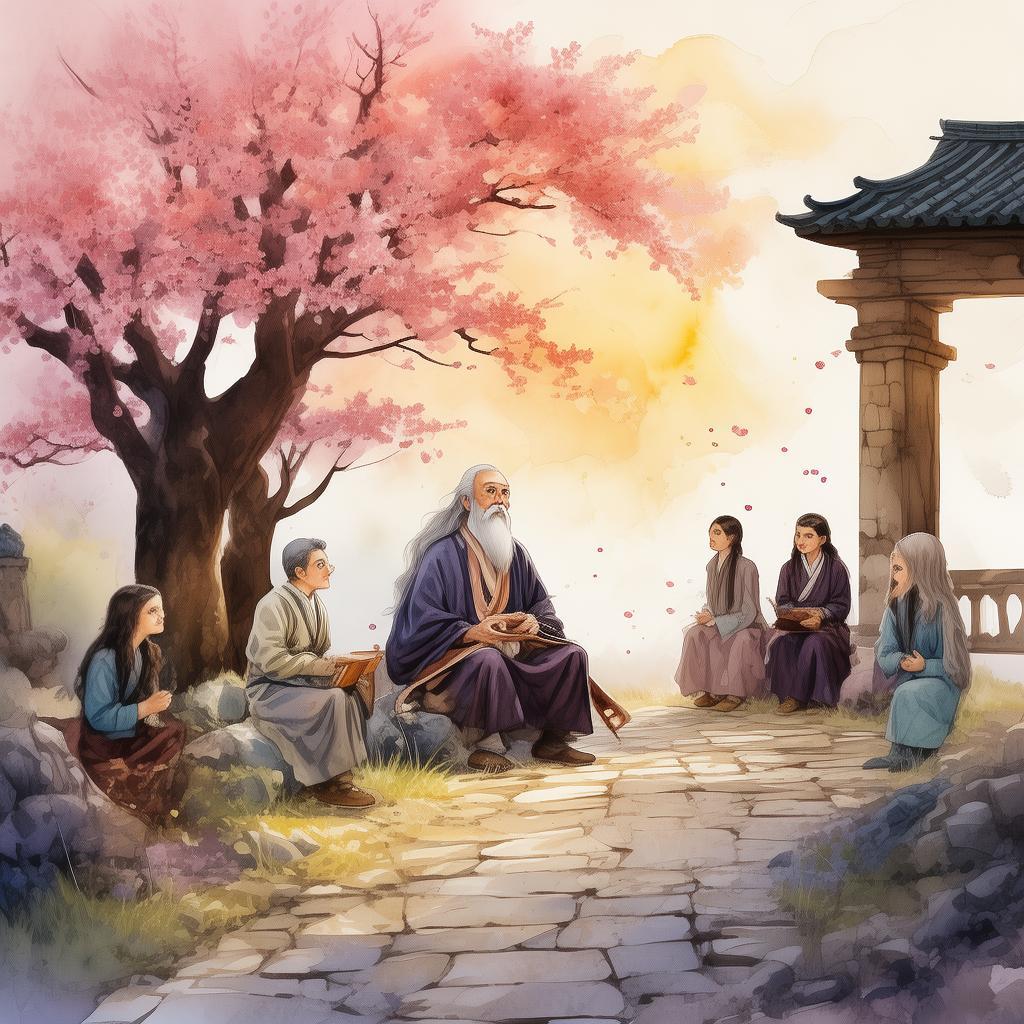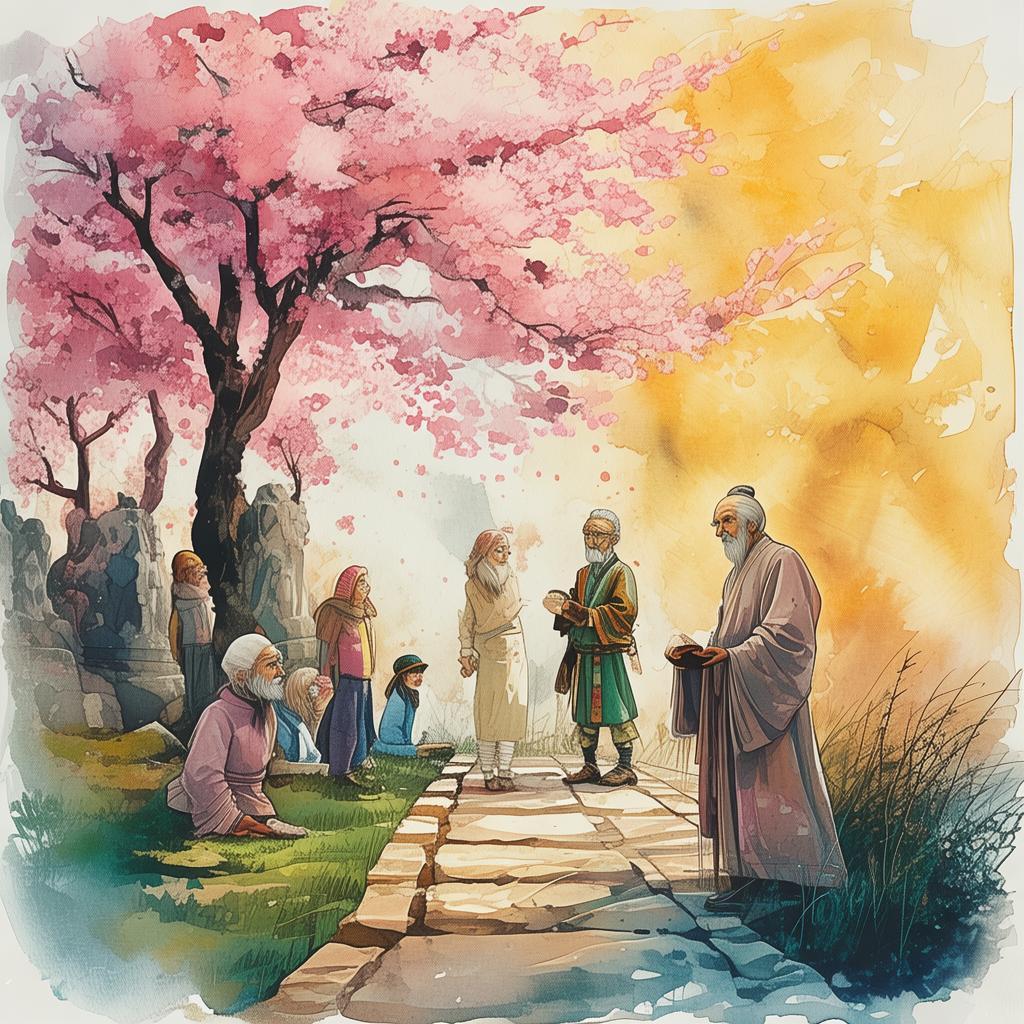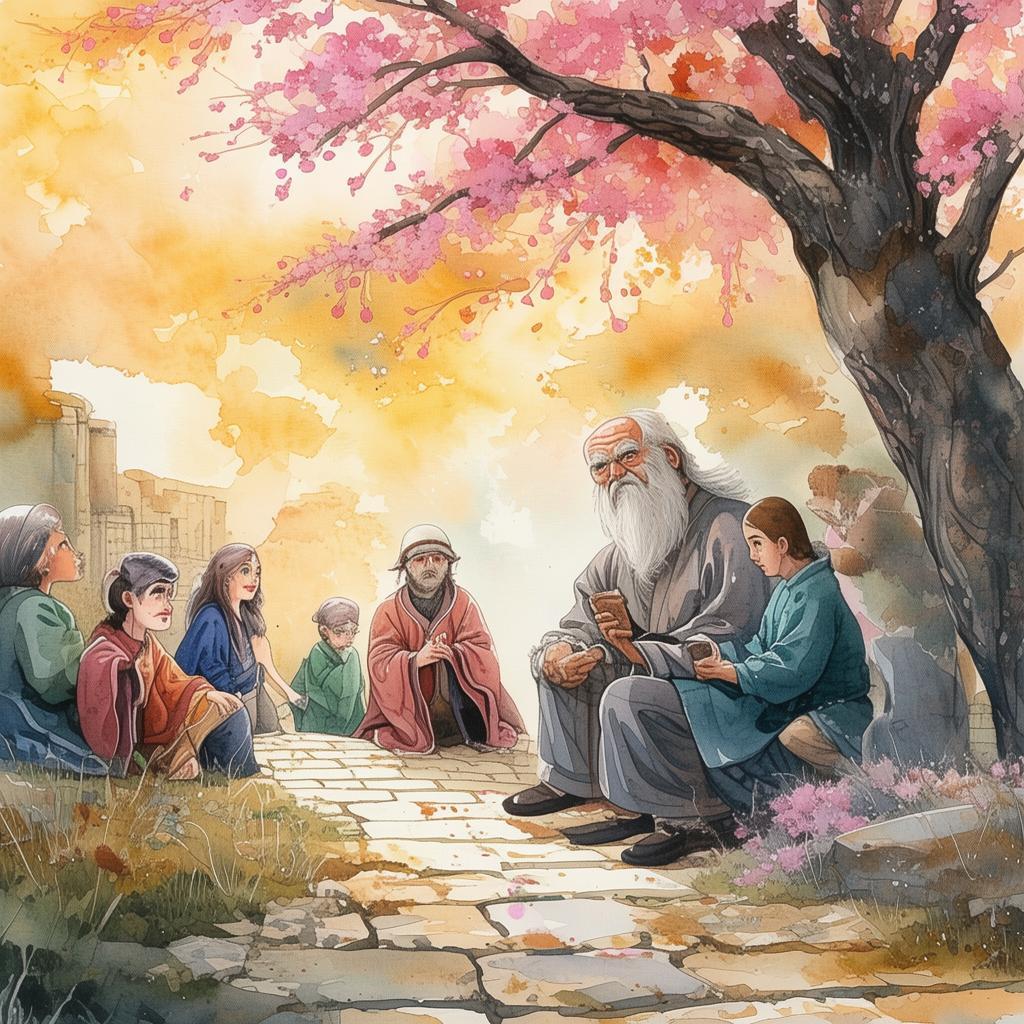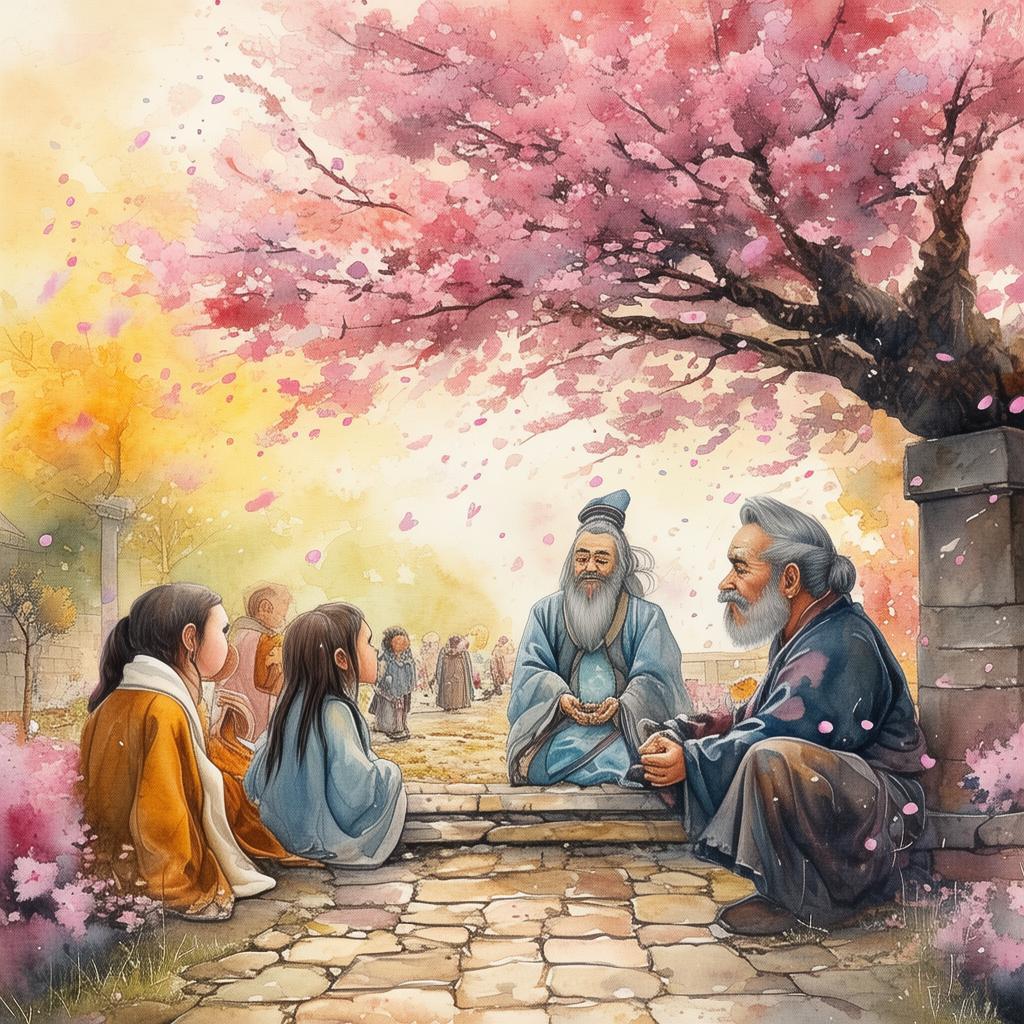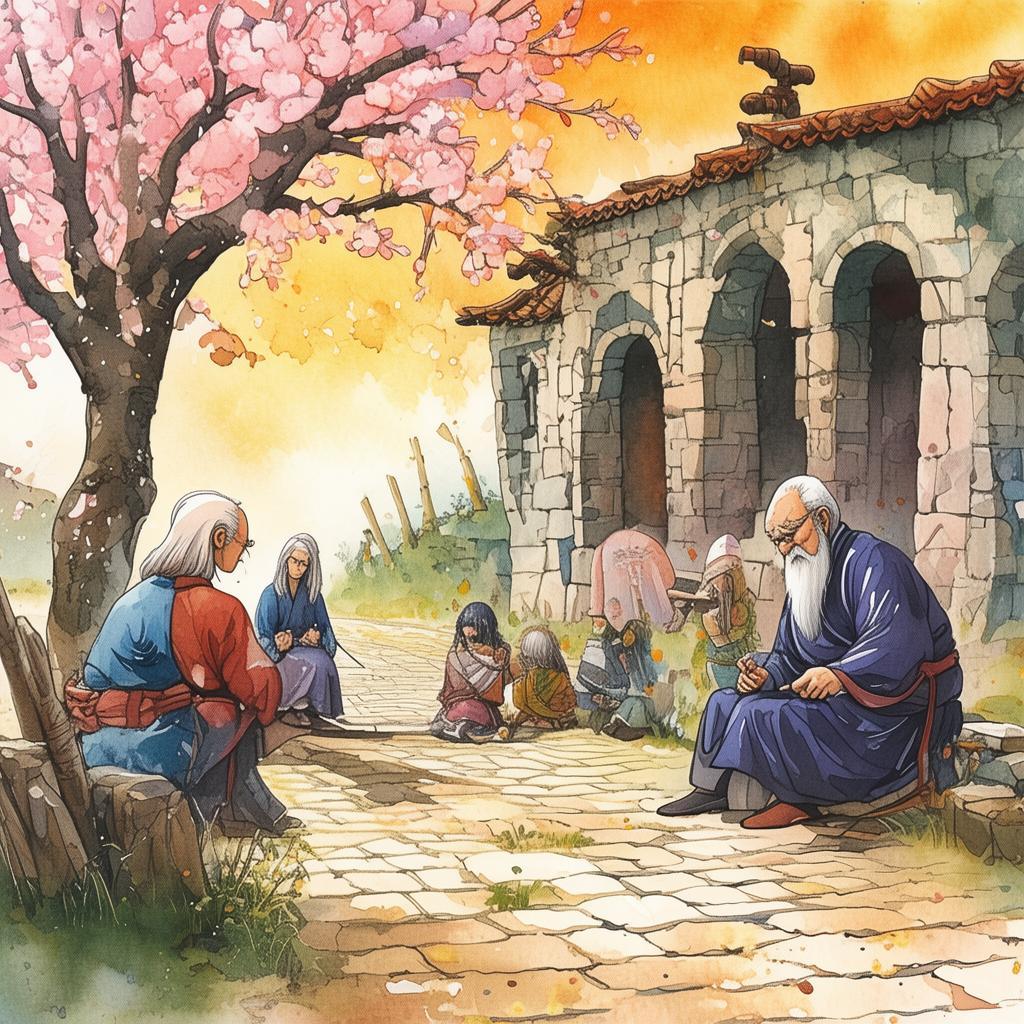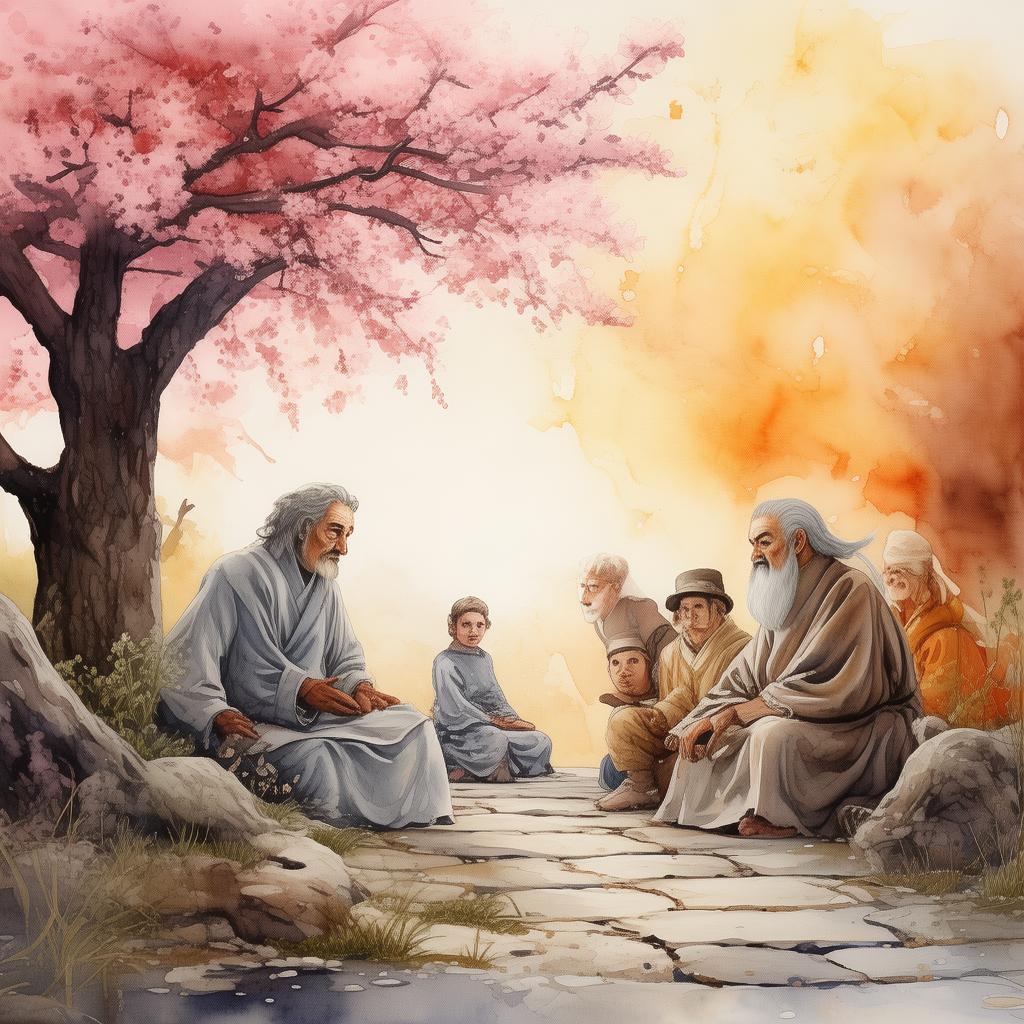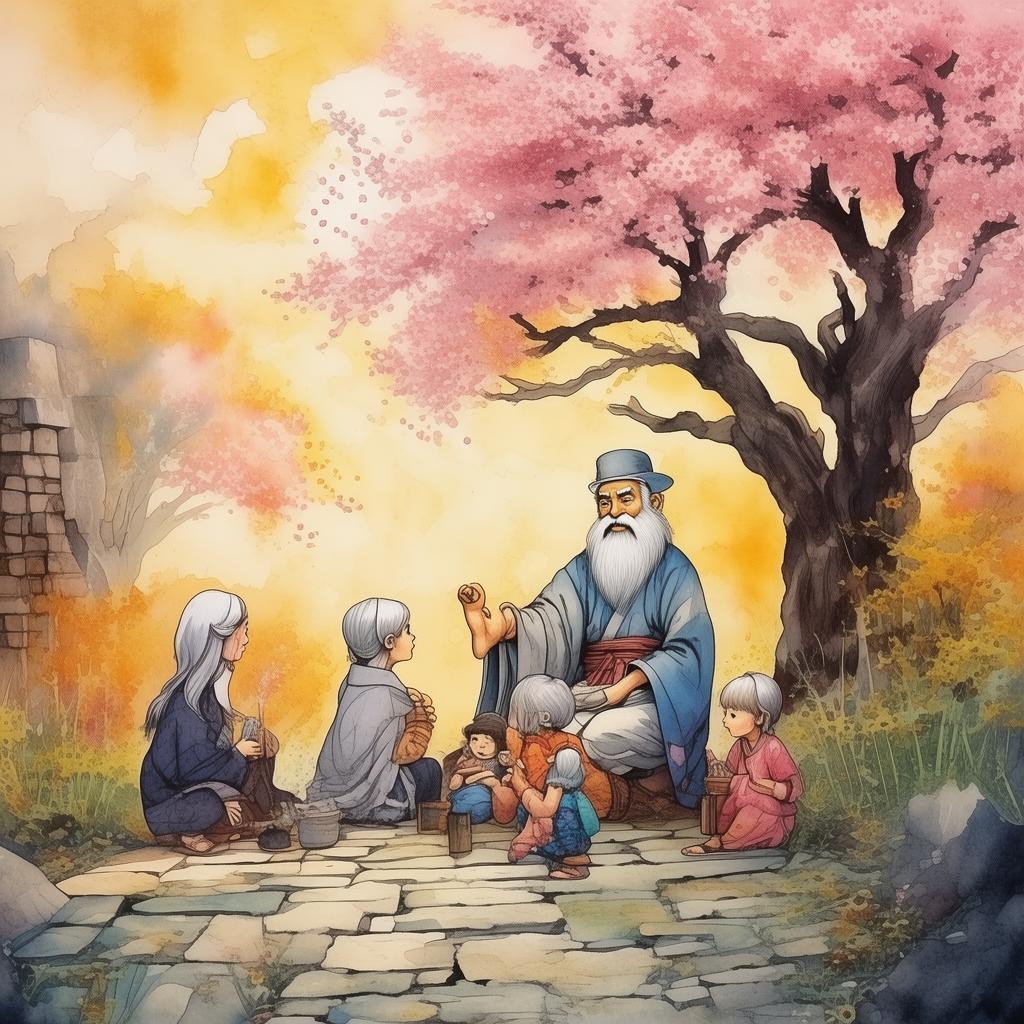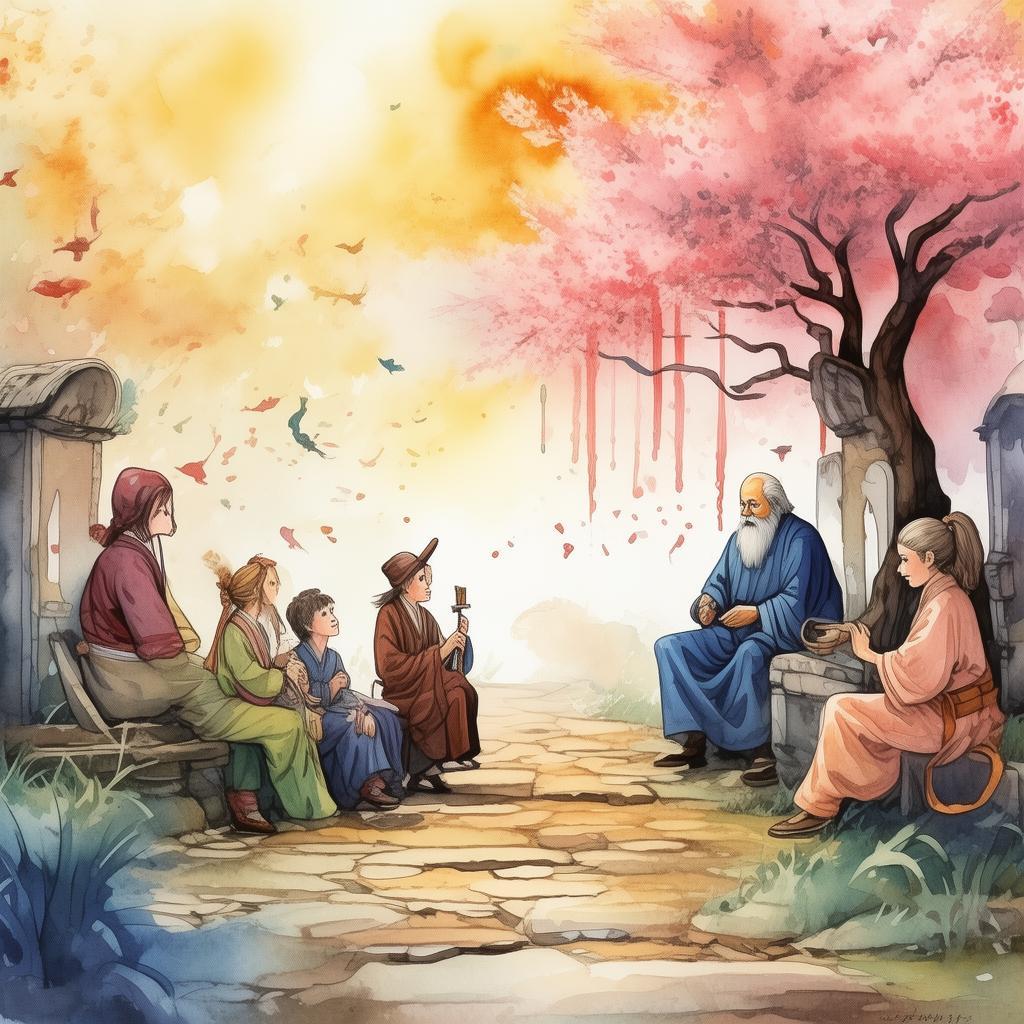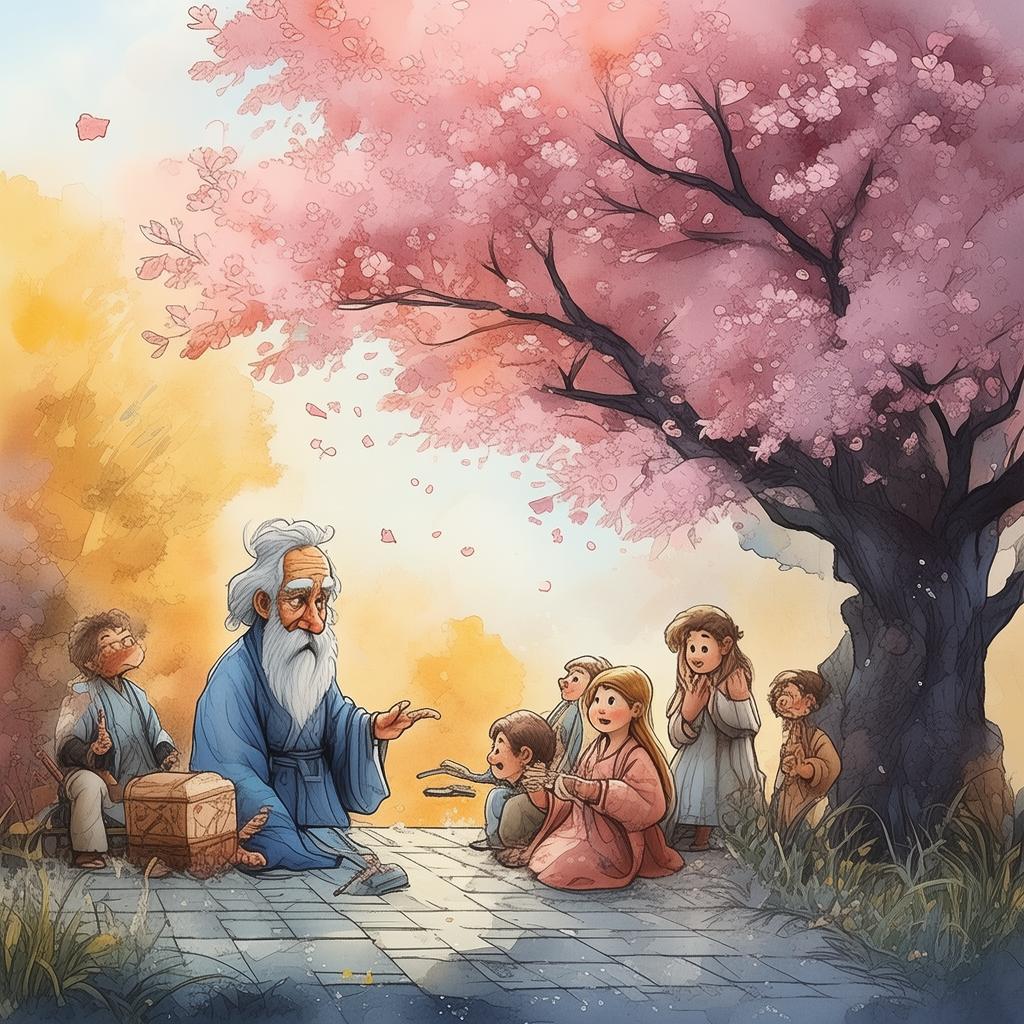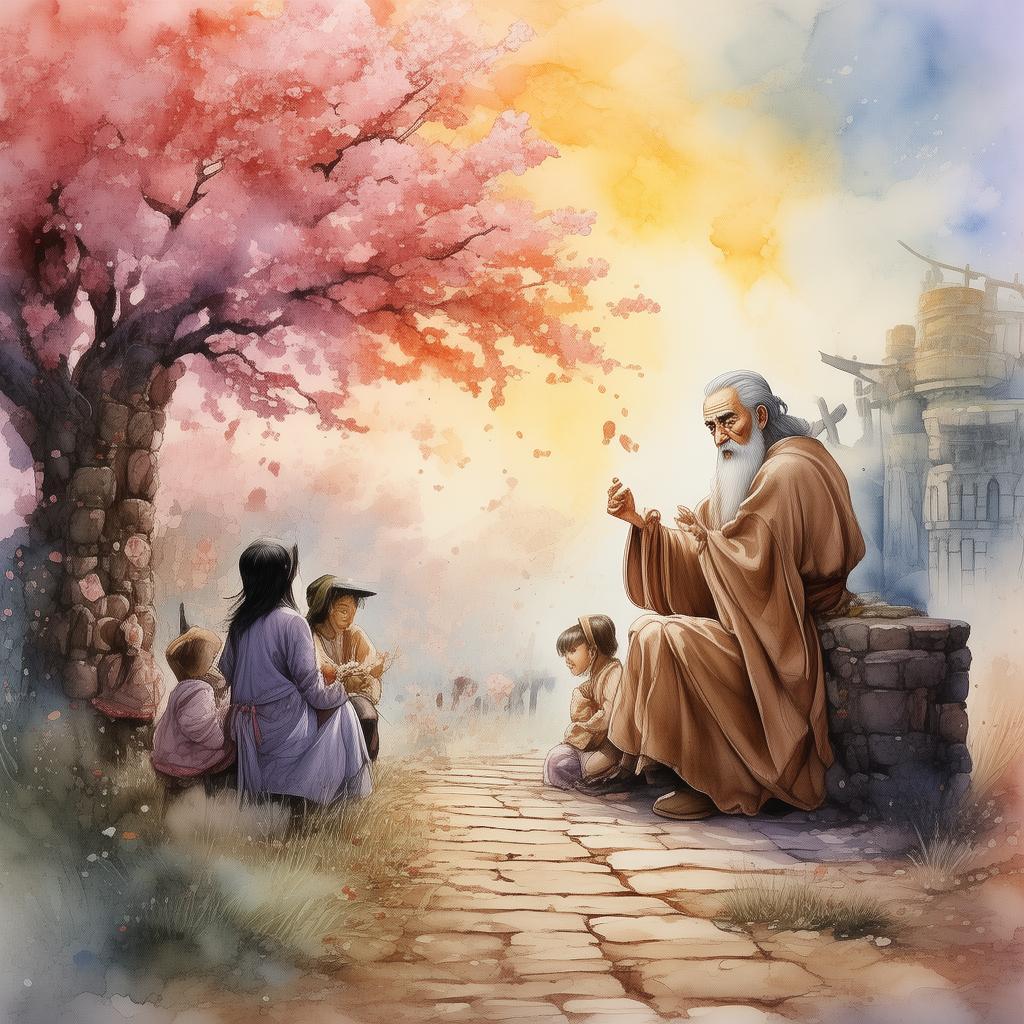The Zen of the Lost Garden
In the bustling heart of the ancient city of Chang'an, where the echoes of history seemed to whisper through every cobblestone alley, there lay a secret garden known only to the most discerning of minds. It was said that within its walls, the Zen of the past was waiting to be rediscovered. The city was a labyrinth of stories, each one a thread in the tapestry of time, and the garden was the most precious of all.
The seeker, a young man named Ming, had heard tales of the garden since childhood. His father, a scholar deeply versed in the ancient texts, often spoke of the Zen that could be found in the quietude of nature. Ming had always been drawn to the stories, to the idea that the wisdom of the past could guide him through the complexities of the modern world.
One crisp autumn morning, Ming decided to embark on a quest for the Zen of the past. He packed a small bag with essentials and set out with a heart full of determination. The city was alive with the sounds of merchants hawking their wares, the clatter of horse-drawn carriages, and the distant hum of a bustling marketplace. Ming navigated through the throngs of people, his mind focused on the path that would lead him to the garden.
As he ventured deeper into the city, Ming encountered a series of riddles and puzzles, each one a test of his resolve and understanding. The first riddle came from an old beggar who claimed to be a guardian of the path. "Why do leaves fall from trees?" the beggar asked, his eyes twinkling with mischief.
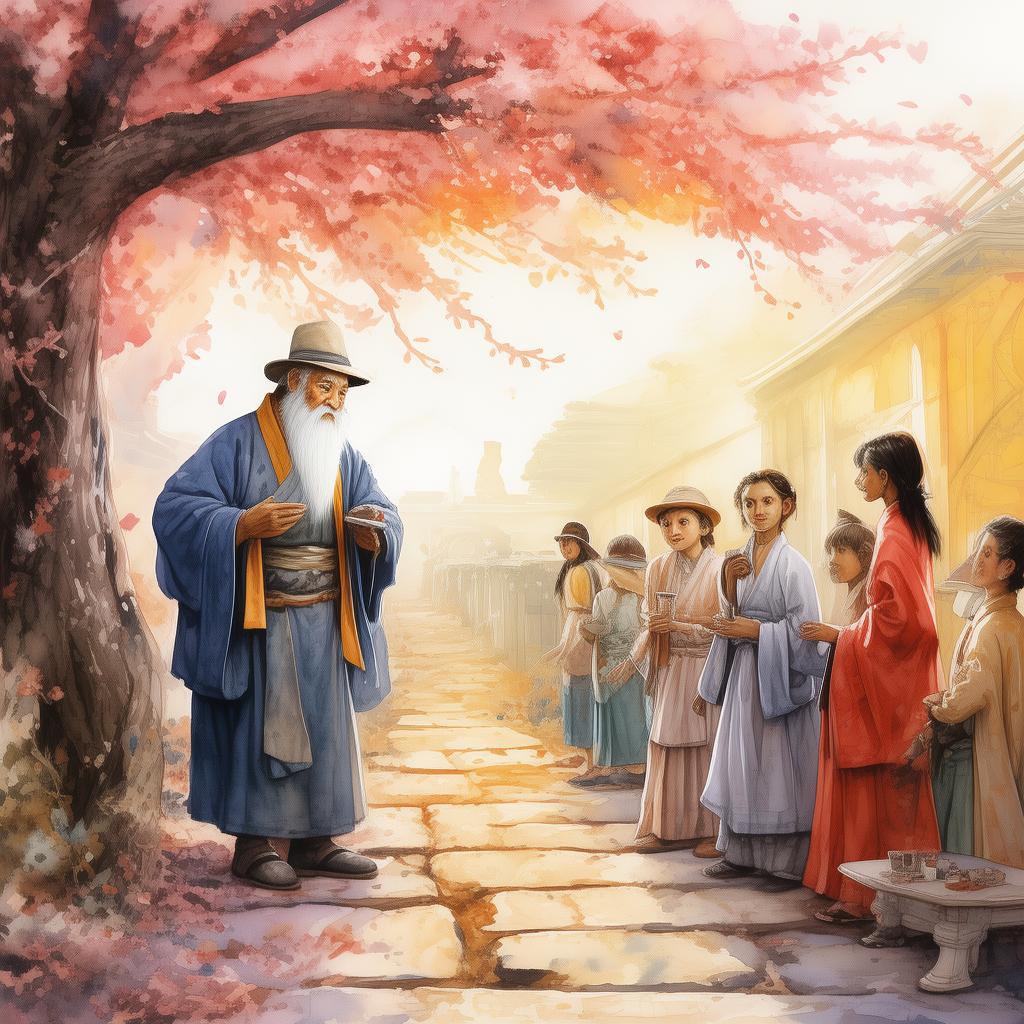
Ming pondered the question, and it occurred to him that the answer might lie in the cycle of life and death, a concept deeply rooted in Zen philosophy. "Because they must give way to new growth," he replied.
The beggar nodded approvingly and pointed to a narrow alley that seemed to lead nowhere. Ming followed the path, only to find himself at the entrance of a hidden gate. Beyond the gate was a serene garden, untouched by the outside world.
The garden was a paradise of tranquility, with ancient trees, winding paths, and a small pond that shimmered with the light of the morning sun. Ming wandered through the garden, feeling a sense of peace wash over him. He noticed a stone bench, and on it, he found a scroll.
The scroll was inscribed with ancient Chinese characters, and Ming, with the help of his father's teachings, deciphered the words. The scroll spoke of the Zen of the past, of the importance of living in the present moment and of embracing the impermanence of all things.
As Ming read the scroll, he realized that the garden was not just a physical place but a metaphor for the journey of life. Each step he had taken, each riddle he had solved, was a part of the journey to understanding the Zen of the past.
One day, as Ming sat by the pond, he noticed a small, delicate butterfly fluttering from flower to flower. The butterfly, he realized, was a symbol of transformation, of the way in which the past could be reborn in the present. It was a reminder that the wisdom of the past was not a relic but a living force, one that could guide him through the challenges of the present.
Ming spent many days in the garden, meditating and reflecting on the teachings of the scroll. He began to understand that the Zen of the past was not about escaping the world but about embracing it fully, with an open heart and a clear mind.
As the days turned into weeks, Ming felt a profound change within himself. He had discovered that the Zen of the past was not just a lesson but a way of life. It was a reminder that the wisdom of the ages was still relevant, that the ancient teachings could be applied to the modern world.
One evening, as the sun set over the ancient city, Ming left the garden, his heart full of gratitude. He knew that the journey had only just begun, that the Zen of the past was a journey without end. But he also knew that he had found a place within himself where the wisdom of the past would always reside.
Ming returned to his life, a changed man. He carried the Zen of the past with him, a light that guided him through the darkness of uncertainty. He shared his experiences with others, inspiring them to seek their own paths to wisdom.
And so, the secret garden remained a hidden treasure, a place where the Zen of the past could be found, waiting for those who sought it with an open heart and a willing spirit.
✨ Original Statement ✨
All articles published on this website (including but not limited to text, images, videos, and other content) are original or authorized for reposting and are protected by relevant laws. Without the explicit written permission of this website, no individual or organization may copy, modify, repost, or use the content for commercial purposes.
If you need to quote or cooperate, please contact this site for authorization. We reserve the right to pursue legal responsibility for any unauthorized use.
Hereby declared.
